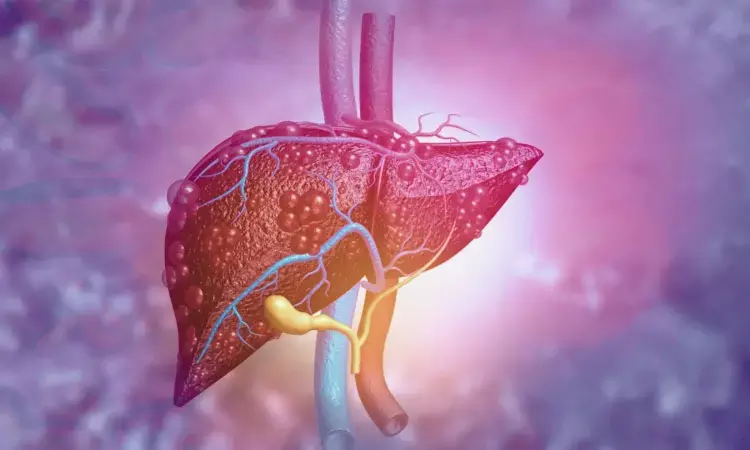- Home
- Medical news & Guidelines
- Anesthesiology
- Cardiology and CTVS
- Critical Care
- Dentistry
- Dermatology
- Diabetes and Endocrinology
- ENT
- Gastroenterology
- Medicine
- Nephrology
- Neurology
- Obstretics-Gynaecology
- Oncology
- Ophthalmology
- Orthopaedics
- Pediatrics-Neonatology
- Psychiatry
- Pulmonology
- Radiology
- Surgery
- Urology
- Laboratory Medicine
- Diet
- Nursing
- Paramedical
- Physiotherapy
- Health news
- Fact Check
- Bone Health Fact Check
- Brain Health Fact Check
- Cancer Related Fact Check
- Child Care Fact Check
- Dental and oral health fact check
- Diabetes and metabolic health fact check
- Diet and Nutrition Fact Check
- Eye and ENT Care Fact Check
- Fitness fact check
- Gut health fact check
- Heart health fact check
- Kidney health fact check
- Medical education fact check
- Men's health fact check
- Respiratory fact check
- Skin and hair care fact check
- Vaccine and Immunization fact check
- Women's health fact check
- AYUSH
- State News
- Andaman and Nicobar Islands
- Andhra Pradesh
- Arunachal Pradesh
- Assam
- Bihar
- Chandigarh
- Chattisgarh
- Dadra and Nagar Haveli
- Daman and Diu
- Delhi
- Goa
- Gujarat
- Haryana
- Himachal Pradesh
- Jammu & Kashmir
- Jharkhand
- Karnataka
- Kerala
- Ladakh
- Lakshadweep
- Madhya Pradesh
- Maharashtra
- Manipur
- Meghalaya
- Mizoram
- Nagaland
- Odisha
- Puducherry
- Punjab
- Rajasthan
- Sikkim
- Tamil Nadu
- Telangana
- Tripura
- Uttar Pradesh
- Uttrakhand
- West Bengal
- Medical Education
- Industry
Persistent MASLD Tied to Fivefold Risk of Type 2 Diabetes and Higher Cardiovascular Events: Study

South Korea: A large-scale study conducted in South Korea has revealed that ongoing metabolic dysfunction-associated steatotic liver disease (MASLD) significantly heightens the risk of developing type 2 diabetes (T2DM), cardiovascular disease (CVD), and overall mortality. The research, led by Dr. Eugene Han from Keimyung University School of Medicine and published in Cardiovascular Diabetology, highlights the critical role liver health plays in broader metabolic outcomes.
The investigation utilized health data from over 4.3 million Korean adults without diabetes at baseline, tracking their liver status over time using the fatty liver index (FLI), a non-invasive tool that estimates liver fat based on metabolic parameters. Participants were categorized into four groups based on their MASLD progression or resolution between two health check-ups: never had MASLD, newly developed MASLD, regressed MASLD, and persistent MASLD.
The findings of the study were summarized as follows:
- Over a median follow-up of 7.3 years, about 5.2% of participants developed type 2 diabetes.
- Individuals with persistent MASLD had over a fivefold higher risk of developing type 2 diabetes compared to those without any history of MASLD.
- Participants who developed MASLD during the study or showed regression still had significantly elevated risks of developing type 2 diabetes.
- Among individuals already diagnosed with diabetes, those with persistent MASLD were 28% more likely to experience heart failure.
- These individuals also had a 15% higher risk of heart attack.
- They faced a 14% greater risk of stroke.
- They had an 11% higher risk of all-cause mortality compared to those without MASLD.
- Even participants whose MASLD had regressed continued to show elevated cardiovascular risks, indicating that fluctuations in liver health may still influence outcomes.
Despite its scale and robust methodology, the study acknowledged certain limitations. The FLI, while widely used in large population studies, is an indirect measure and may not perfectly reflect true liver fat levels, especially in the context of weight changes or medication use. Additionally, crucial variables such as body mass index and waist circumference were excluded from some analyses to avoid overlapping with FLI inputs, potentially affecting the strength of the associations.
Other gaps included the inability to differentiate causes of death, account for changes in diabetes treatment, or evaluate genetic and gut microbiome contributions. Also, because the study focused on a Korean population, its results may not be directly applicable to other ethnic groups.
The authors concluded, "Nevertheless, the findings highlight the urgent need for clinicians to regularly monitor liver fat accumulation in patients, especially those at risk for or already living with diabetes. MASLD, often overlooked in routine care, appears to be more than a liver condition—it’s a critical marker of systemic metabolic and cardiovascular risk."
Reference:
Han, E., Han, KD., Lee, Yh. et al. Association of temporal MASLD with type 2 diabetes, cardiovascular disease and mortality. Cardiovasc Diabetol 24, 289 (2025). https://doi.org/10.1186/s12933-025-02824-3
Dr Kamal Kant Kohli-MBBS, DTCD- a chest specialist with more than 30 years of practice and a flair for writing clinical articles, Dr Kamal Kant Kohli joined Medical Dialogues as a Chief Editor of Medical News. Besides writing articles, as an editor, he proofreads and verifies all the medical content published on Medical Dialogues including those coming from journals, studies,medical conferences,guidelines etc. Email: drkohli@medicaldialogues.in. Contact no. 011-43720751


